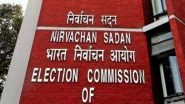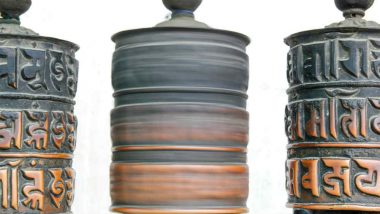World Sanskrit Day also known as Sanskrit Diwas is observed on August 26. The day is dedicated to the ancient Indian language to maintain its revival and maintenance. While many words in prominent languages widely used in the world have its origin in Sanskrit, the popularity of the language as a whole has been diminishing in the recent past. World Sanskrit Day is celebrated on Shravan Poornima which is the Poornima in Sravana month as per the Hindu calendar.
The observance of World Sanskrit Day came into being on August 7, 2017. Samskrita Bharati, a non-profit organisation which is involved in reviving Sanskrit promotes the day. While Sanskrit was widely used during the Vedic time, it lost its place in modern India. Sanskrit Day was first celebrated in 1969. Various events including talks, competitions and other programs are held on them.
Sanskrit is currently predominantly used only during pujas for recitations of shlokas and mantras. Hence, World Sanskrit Day tries to increase its usage in modern India. Sanskrit showcases India's rich cultural heritage and some of the famous stories told in every household are written in Sanskrit.
Watch the video below:
World Sanskrit Day, also known as #Sanskrit Diwas, being celebrated today pic.twitter.com/oxK7niVYtc
— Doordarshan News (@DDNewsLive) August 26, 2018
Prime Minister Narendra Modi in the 47th edition of Mann ki Baat on Sunday conveyed greetings on Sanskrit Diwas. Talking about the importance of Sanskrit, he said, "Sanskrit has played a crucial role in the spread of knowledge. There will not be any field of knowledge which has not been propagated through Sanskrit."
Modi greets the nation on World Sanskrit Day:
Greetings to all those who are associated with the Sanskrit language.
This language is deeply connected with our culture. #MannKiBaat pic.twitter.com/JzO8BnZhgv
— PMO India (@PMOIndia) August 26, 2018
Check out PM's tweet below:
Sanskrit Subhashitas help articulating things. Here is how a Guru has been described in Sanskrit.
I also convey greetings on Teacher's Day: PM @narendramodi during #MannKiBaat pic.twitter.com/gPza5eIwsu
— PMO India (@PMOIndia) August 26, 2018
Europeans have also been impressed by Sanskrit during their visits to India. Sir William Jones who was a judge of the British Supreme Court of Judicature in Calcutta came to India in 1783. He translated Abhijnana Shakuntala and Ritu Samhara which had been written by the Sanskrit poet Kalidasa. He also translated Gita Govinda written by the poet Jayadeva into English. Jones is also credited with the translation of Manusmriti into English.
(The above story first appeared on LatestLY on Aug 26, 2018 01:31 PM IST. For more news and updates on politics, world, sports, entertainment and lifestyle, log on to our website latestly.com).













 Quickly
Quickly


